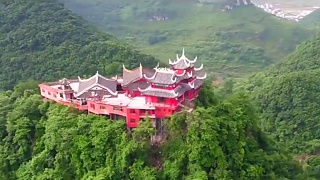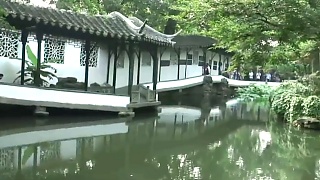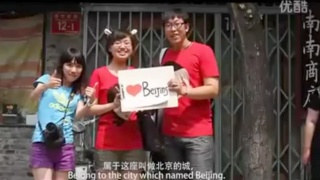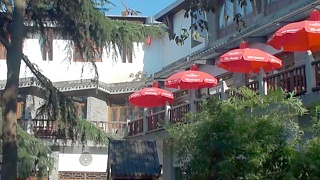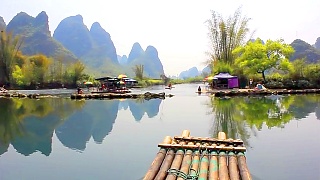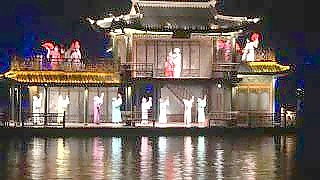
|
With Valeriy Blank ...
Visitor Guide to XianYang
Introduction to XianYang
XianYang (咸阳), located in ShaanXi Province, is one of China's most historically significant cities. As the ancient capital of the Qin Dynasty (221–206 BCE), XianYang played a pivotal role in Chinese history and culture. Today, it is a vibrant city that blends its rich past with modern development, offering visitors a unique mix of historical sites, cultural experiences, and natural beauty.
Top Attractions in XianYang
Maoling Mausoleum (茂陵) - The tomb of Emperor Wu of the Han Dynasty, surrounded by smaller tombs of his concubines and generals. The site features impressive stone carvings and statues.
Qianling Mausoleum (乾陵) - The joint burial site of Emperor Gaozong and Empress Wu Zetian, the only female emperor in Chinese history. The site is known for its grand scale and the famous "Silent Statues" lining the Sacred Way.
XianYang Museum (咸阳博物馆) - A treasure trove of artifacts from the Qin and Han Dynasties, including pottery, jade, and bronze ware. The museum provides a deep dive into the region's history.
ZhangLiang Temple (张良庙) - A temple dedicated to ZhangLiang, a famous strategist and statesman of the early Han Dynasty. The temple is set in a serene environment with beautiful architecture.
FengHe River Scenic Area (沣河风景区) - A picturesque area along the FengHe River, perfect for leisurely walks, boating, and enjoying the natural scenery.
Local Cuisine
XianYang is known for its delicious ShaanXi cuisine, which features bold flavors and hearty dishes. Some must-try foods include:
BiangBiang Noodles (BiangBiang Mian) - Thick, hand-pulled noodles served with a savory sauce, often topped with vegetables and meat.
RouJiaMo (肉夹馍) - Often referred to as the "Chinese hamburger," this dish consists of braised pork stuffed inside a flatbread.
YangRou PaoMo (羊肉泡馍) - A hearty lamb soup with crumbled flatbread, a specialty of ShaanXi Province.
LiangPi (凉皮) - Cold, chewy noodles made from wheat or rice flour, served with a spicy and tangy sauce.
Getting Around XianYang
XianYang is well-connected by public transportation, making it easy to explore the city and its surroundings. Options include:
Buses: The city has an extensive bus network that connects major attractions and neighborhoods.
Taxis: Taxis are readily available and affordable for getting around the city.
Bicycles: Renting a bicycle is a great way to explore XianYang at your own pace, especially along the FengHe River.
High-Speed Rail: XianYang is just a short ride from Xi'An via high-speed rail, making it easy to combine visits to both cities.
Best Time to Visit
The best time to visit XianYang is during the spring (March–May) and autumn (September–November) when the weather is mild and pleasant. These seasons are ideal for exploring outdoor attractions like the FengHe River Scenic Area and the ancient mausoleums.
Tips for Visitors
Language: Mandarin is the primary language spoken in XianYang. Learning a few basic phrases can be helpful, especially in more rural areas.
Currency: The local currency is the Chinese Yuan (CNY). Credit cards are accepted in most hotels and restaurants, but it's a good idea to carry cash for smaller establishments.
Etiquette: When visiting historical sites, dress modestly and be respectful of local customs and traditions.
Health and Safety: XianYang is generally a safe city, but it's always a good idea to take standard precautions, such as keeping an eye on your belongings and staying aware of your surroundings.
Conclusion
XianYang is a city steeped in history and culture, offering visitors a chance to step back in time and explore the legacy of ancient China. From its majestic mausoleums to its vibrant local cuisine, XianYang is a destination that promises a rich and rewarding experience. Whether you're a history enthusiast, a food lover, or simply looking to explore a lesser-known gem in ShaanXi Province, XianYang is sure to leave a lasting impression.
|
 The US war on China (and everyone else)
The US war on China (and everyone else)
![Planning War On China part 40 (the encore). From now, all similar content will be on the new Geopolitics page, so do check that out and bookmark. Something Different, health, and psychology videos are likely to also move to their own pages. So we will still cover all these aspects of life, but have more time to focus on Chinese culture and China travel. *************************** Official racism is a very important fact to consider, and because it is is based on propaganda, can be easily missed for what it really is. Yet once seen, it is all so clear. Us and Them - is the sales pitch of supremacists and bomb companies. That is ALL it is. There is no `us and them`; that is just a scam to fool you into obedience / subservience / enslavement. The real schism is that there are real / open-eyed people, and then there are the brainwashed / believers people. Simple as that. Puppets at the top; puppets at the bottom. One life, one world, one family. One has love, or one does not. Real love doesn`t have targets; real love is a light that shines in all directions. Onto the video film . . . With George Galloway in conversation with Jerry`s Take on China . . . Bonus films . . . George at his very best - don`t miss it . . . What is more important - life or money (power) ? Simply believe ? Or be free to see reality ?? No longer puppet. Live more . . . Because it is not about `me` (that is the scam / fantasy, and a big topic in itself - `your problems are all your fault`, is part of it); it is really about `WE`. In China, the people are family. In the West, the people are livestock. And that is the `threat`. [ video v=fIxPv2Dn_P0 ] Oliver Stone interviews Vladimir Putin . . . Taiwan the next Ukraine ? . . . Lee Camp . . . [ video v=OSkpIq3T-Zc ] Racism is racism is racism. There is NO excuse, no matter how `official` it is sold to you. Something like 3 million died in the Vietnam war (not including the carpet bombing of Laos and Cambodia), alone. This is what racism entails. How many times will this lie play out ? Meanwhile . . . Peace. Official racism. Reality is so very different from the 'official' / MSM narrative / fairy tale - DON'T MISS THIS !](https://img.youtube.com/vi/Kc7f4JKhwtk/mqdefault.jpg)









![`US-sponsored separatist groups, backed by Washington for decades, are being mobilized to attack and undermine activities related to the BeiJing 2022 Olympics, starting with the torch relay in Greece. I explain the background of the “Free Tibet” movement and how the US government, through the CIA, backed it as early as the 1950s and transferred its operations to the National Endowment for Democracy (NED) [or `Dominion` / enslavement]. ` With The New Atlas . . . Bonus films - terror activities by US-backed `opposition` in Myanmar . . . Bonus film 2 - subverting the `left` . . . Bonus film 3 - on Ecuador . . . Bonus film 4 - on Cambodia . . . They say : `How dare you put your face in front of my fist ! Serve your master. Or else. ` More . . . On the US plan to nuke Chinese cities - as revealed by Daniel Ellsberg, famous for the `Pentagon Papers`, with NuMuves . . . On the Falun Gong cult . . . *** Planning war on China - part 11 - don't miss it ***](https://img.youtube.com/vi/2w31eNNcGVU/mqdefault.jpg)































![Quote (from the BBC `news` website, 19th February 2023) : `Meanwhile, friends of the detainees [supposedly lockdown protesters], anxious and worried for their own personal safety, continue to keep tabs on the situation and share information. Many of them live overseas and did not attend the November protests . . . [about saving lives with lockdowns]. ` The lockdowns might have been over the top, but doubtless saved many lives - so that is a matter of debate; and the `protesters` might have had some good arguments [one might say], but the key thing here is whether in reality it was all a Western attempt at subverting China; and if one looks at other articles around the same time / leading up to these `protests` [greatly exaggerated], that seems to indeed be the case. Again, in the BBC`s own words : Many of them LIVE OVERSEAS. In the BBC`s own words : Many of them LIVE OVERSEAS. LIVE OVERSEAS. This is a very important point to keep in mind : these people were not there, but somehow have something to say, and their `not even there` tale is being pushed by MSM. It is the XinJiang / HK scam repeated over, and over, and over again. Who are these people and who do they work for ? [Well hidden of course] Not knowing these facts, why trust them ??? Enough of the BBC - they have no credibility; we are not going to do this every day [when see excrement, step over it, it is not worth analysing]; the lies are easy to spot, if you look. Open your eyes . . . And always remember that propaganda is the first move in war - demonise your `enemy` [everyone `else`]. While frustration can be understood, covert agendas [and foreign recruits?] are another thing. For sure, though, the `daily hate` will continue; and shame on them. *** Once the venom is extracted, the disease is cured. *** Bonus film - the US spent millions of dollars shooting down $12 hobby balloons . . . A thought on the latest BBC's daily China hate article](https://img.youtube.com/vi/1EFiAy8THFA/mqdefault.jpg)














